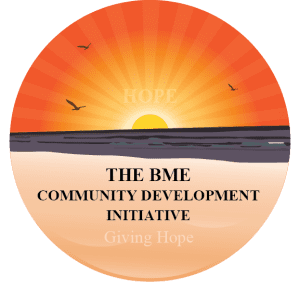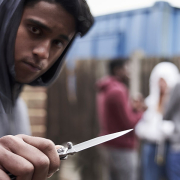Nicholas Prosper: A Family’s Darkest Hour – The Luton Plot

Barely six weeks after Southport’s agony, another English town awoke to a horror inside an ordinary family home. In Luton, on a quiet September morning in 2024, 19-year-old Nicholas Prosper was supposed to be sleeping in like any teen on a day off.
Instead, he was loading a shotgun in secret, preparing to enact a plan as evil as it was unimaginable. Nicholas’s parents and siblings had no inkling of the darkness festering within him. He had isolated himself from the family for months.
That dawn, Nicholas snapped. In a burst of calculated violence, he turned the gun on his own flesh and blood. When the sudden sound of gunshots and screams jolted neighbours awake, they could hardly believe what was happening.
Nicholas had murdered his mother, Juliana, his brother Kyle, and sister Giselle in cold blood. The gruesome scene spoke of a desperate struggle. His mother killed by a shotgun blast after trying to fight her son off, his little sister found under the dining table as if hiding, his brother’s body riddled with over a hundred knife wounds alongside the gunshots. It was a family annihilation, executed by a son who showed no mercy to those closest to him.
As shocking as that was, the carnage Nicholas wrought at home was only the beginning of a far larger nightmare he had planned. In notebooks and videos later found by police, the full extent of his scheme came to light. This was not a crime of passion or a sudden break.
It was premeditated mass murder on a scale Britain had never seen. Nicholas Prosper had spent more than a year meticulously plotting to attack his former primary school and slaughter at least 30 children in their morning assembly. Inspired by infamous school shooters, he craved the ghastly glory of surpassing them.
He studied the 2012 Sandy Hook massacre and other mass killings, determined to “imitate and even surpass other mass killers around the world”. In chilling detail, he mapped out schedules and even chose a macabre “uniform”, dressing himself in black and yellow with a bucket hat, like a comic-book villain, to ensure he would be remembered.
Notoriety was his ambition, and he saw murder as his path to it. After executing his family, he intended to storm into St. Joseph’s Catholic primary school by 9:00 AM and shoot dead dozens of innocent children and teachers. In a twisted video he posted online that morning, Nicholas even boasted an almost delusional justification, claiming he was “chosen” by a fictional character from a video game to carry out this act.
And when he was later locked in a cell, with his family’s blood on his hands and his grand plot foiled, he showed no remorse. In fact, he chillingly told a prison guard, “I wish I had killed more,” admitting he had hoped to outdo Sandy Hook’s death toll.
It is hard to fathom a darker portrait of a lost young man: utterly consumed by violent obsession, devoid of empathy, yearning to be a monster that the world would never forget.
Yet, amid this horror, flickers of hope emerged in the actions of others. Nicholas’s murderous march was stopped before it reached the school by the very people he first sought to harm. As he began attacking his family in the early morning hours, their will to live and protect others kicked in.
His mother, Juliana, realised something was terribly wrong and confronted her son, trying to disarm him. In the struggle that followed, Nicholas shot each member of his family, but their resistance threw his perfect plan into chaos.
The commotion of that frantic struggle shouting, frantic footsteps, gun blasts alerted the neighbours, who quickly called the police. Realising the neighbourhood was waking up and the authorities were closing in, Nicholas fled the bloodied flat before he could head to the school. He hid for a couple of hours, crouched with his shotgun in the bushes, but soon saw his grand scheme unravelling as sirens blared and armed officers swarmed the area.
Ultimately, Nicholas gave himself up, flagging down a police car. His courage for mass murder evaporated once he stood alone, faced only with the reality of what he had done. In that sense, his family’s brave resistance and quick police response averted a larger massacre. The headteacher of the targeted school later confessed that staff were “very shocked” to learn how narrowly their students had escaped a devastating attack.
In the days after, as Luton struggled to understand how a local teenager became a would-be mass killer, the heartbreak was laced with a strange kind of gratitude. The community mourned Juliana, Kyle, and Giselle candles and flowers piled up for them.
Yet people also spoke of them as unwitting heroes. A judge noted in court that the Prosper family’s ordeal, as awful as it was, almost certainly “saved the lives of many children” who would have been targeted next.
“The community owes them its gratitude and their memory should be honoured,” the judge said solemnly of the mother and siblings who died stopping Nicholas’s rampage.
Those words were echoed by the family’s grieving patriarch, Raymond Prosper, who somehow found the strength to see meaning in the loss of his wife and two of his children. “We now see the deaths of Juliana, my son Kyle and daughter Giselle had much more meaning and importance,” the father said in a statement, believing that “their deaths… stopped any other family in the community going through the pain we have suffered.”
In the depths of his sorrow, he clung to the idea that his loved ones, in their final moments, died saving others and that grim comfort is what he holds onto. It is a sentiment no parent or husband should ever have to express, but it shows the resilience of the human spirit: even in unbearable heartbreak, there can be a glimmer of hope or purpose.
As for Nicholas Prosper, there was to be no redemption in his story. At least not in this lifetime. The courts swiftly ensured he will never walk free. The 19-year-old was given a life sentence with a minimum of 49 years behind bars, meaning he will be an old man if he ever leaves prison at all.
In the courtroom, he sat unmoved, head in hands, as family members sobbed at the recounting of his brutality. The judge condemned his actions as “heartless” and “brutal”, words that hardly capture the horror of a son methodically killing his own kin.
Psychiatrists would later label Nicholas with psychopathic traits and note that, while he was diagnosed on the autism spectrum, his lack of empathy went far beyond any medical condition. He had become, in the police chief’s words, a “truly evil individual” unlike any they had encountered.
Society’s only response for now is to lock him away for as long as possible to protect the public, and perhaps to ponder how a boy from an ordinary family turned into a monster craving infamy. Were there missed opportunities to catch him sooner?
His father admitted Nicholas had drifted into isolation for a year, unknown to them. Investigators found he frequented online forums about past killers and quietly acquired a weapon with a forged license.
In hindsight, the signs of deep trouble were there, yet no one saw or said anything until it was too late. The Prosper family’s tragedy thus forces everyone to ask: how can we spot the next lonely young man before he crosses the line?
It is a question with no easy answer. But in that question lies a hope that by understanding these missed signs, we might prevent the next catastrophe and maybe save other families from such heartbreak.




